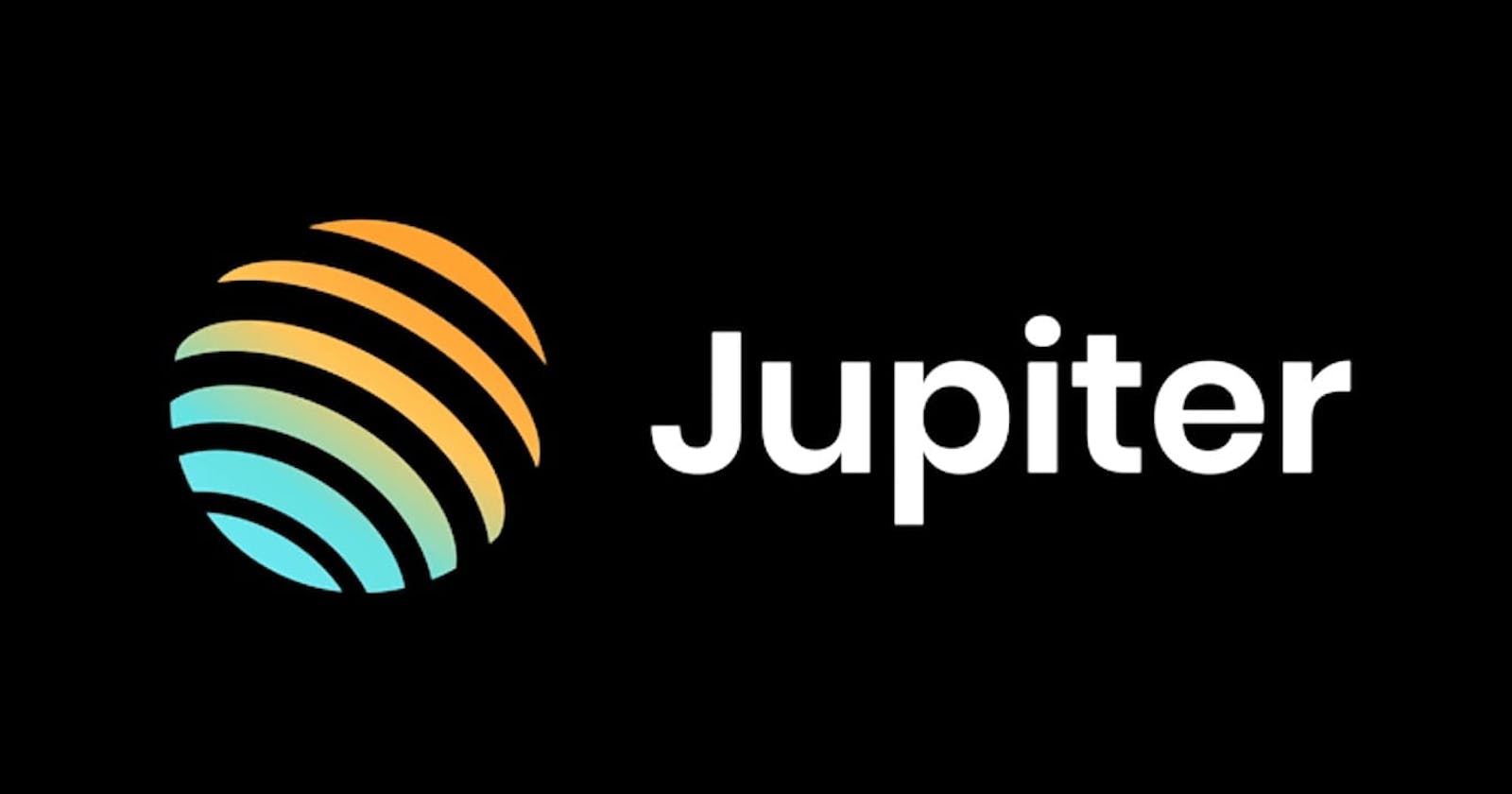Introduction
Jupiter is the key liquidity aggregator for Solana, offering the widest range of tokens and best route discovery between any token pair. It is a decentralized exchange (DEX) that routes orders to several other Solana-based exchanges and executes the best available price for an asset.
Jupiter operates as a DEX aggregator on the blockchain of Solana. Through its connections to many decentralized exchanges on the network, it provides users with a multitude of possibilities for their financial activities. Jupiter provides further services and features include dollar-cost averaging (DCA), which enables customers to schedule recurring purchases over time, and a limit order swap function, which lets users specify desired parameters for their transactions. JUP, the native token of Jupiter, will go live at the end of January 2024. The community and the team will split the token equally.
Several decentralized exchanges operating on Solana provide direct asset swaps with the use of automated market makers (AMMs) and liquidity pools. On these exchanges, the liquidity conditions vary amongst the various asset pairs. Because of this, prices for the same asset may vary greatly, and on certain of these exchanges, increased slippage may arise from the liquidity conditions. Jupiter is a DEX aggregator on Solana that offers features like limit orders and dollar-cost averaging (DCA) in addition to helping customers get the best rates in one location.
Exploring Jupiter
Jupiter is one of the most popular applications on the Solana blockchain, based on data from the network explorer. Jupiter states that it processes deals worth $350 million in cryptocurrency assets per day from more than 100,000 different wallets.
Jupiter is a decentralized exchange aggregator (DEX aggregator), connecting users to many decentralized exchanges through a single interface. Jupiter can access a variety of essential data through this connection, including asset prices, fees levied by liquidity providers, and liquidity conditions across asset pairs. Jupiter then chooses a path for the user's transaction based on this information.
Multiple liquidity pools may be used to route the transaction, depending on the prevailing conditions. A single swap transaction may go through three Hops, with each iteration being referred to as a hop. According to Jupiter, this method makes it simple for traders to use the facility that uses the fewest resources and is most effective for each transaction. Jupiter states that more than 20 DEXs and AMMs on the Solana network are connected to its aggregator.
Features Of Jupiter
Limited Orders
Limit orders are known to be available on centralized exchanges. With limit orders, traders can set up a deal to execute only if the specified conditions are satisfied. These platforms have it easier since they use an order book system, which keeps track of requests to purchase and sell an asset pair. This is a little trickier for decentralized exchanges because of the way liquidity pools and AMM work.
Jupiter, however, provides limit orders. When a user puts a limit order on Jupiter, the order details—such as the amount and selling/buying price—are stored in the limit order protocol. After then, the protocol gets prices from reputable decentralized exchanges and keeps track of any changes to these values.
Bridging
Jupiter also functions as a bridge aggregator. It gathers information from supported bridges and, in a manner akin to its DEX aggregator, shows customers the potential routes for their bridging transaction, the specifics of these routes, and a recommended route based on the prevailing conditions. Users are led to their desired bridge to finish their transactions after selecting their route. Jupiter supports bridging services like Debridge and Mayan Finance.
Wormhole is also supported by Jupiter for asset bridging. Wormhole is a complex messaging system that allows blockchain networks to communicate with one other. As of this writing, Jupiter's Wormhole-powered bridge allows assets to be bridged between the Solana and Ethereum blockchains.
Dollar-Cost Averaging
The Dollar-Cost Averaging (DCA) method is a widely used strategy for impulsive asset purchases. In this case, dealers divide up their trades to buy or sell an asset across time at various points in time. Rather of trading all at once and at a single price point, the goal is to enhance the trader's chances of capturing various peak points (for sells) and lows (for purchases).
By utilizing Jupiter's DCA function, traders allocate their money to the transaction, designate the several price points (or range) at which they would like to buy, the quantity of each purchase, and the duration of the trade.
Tokenomics
The tokenomics of the JUP token encompass:
Total Supply: 10 billion JUP tokens.
Community Allocation: 50% of the total supply is set aside for community distribution through airdrops and other initiatives.
Team and Operational Needs: The remaining 50% is allocated for team and operational needs, with team allocation subject to a vesting period starting in January 2025.
The circulating supply at launch will be 1.35 billion JUP, which includes 1 billion tokens allocated for the airdrop claim, 250 million for a launch pool, and 50 million each for loans to centralized exchange market makers, and immediate liquidity pool needs.
I hope that you must have found this article quite helpful. If yes, then do give a read to some of my other articles!
Who knows you might become a great programmer 🤔!
